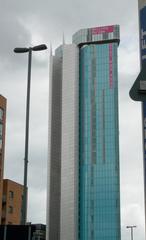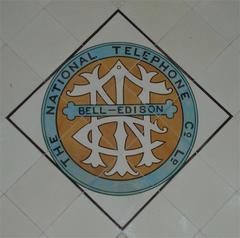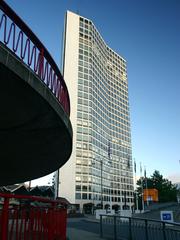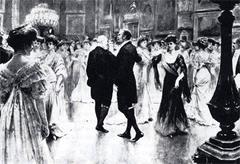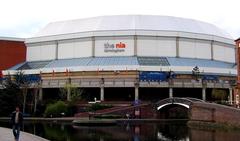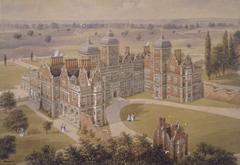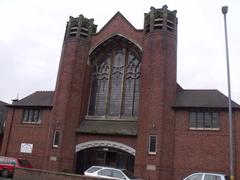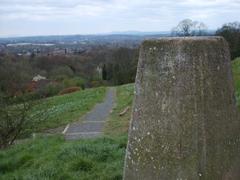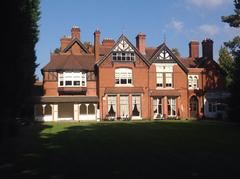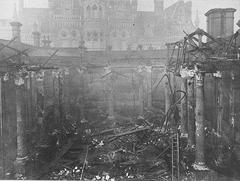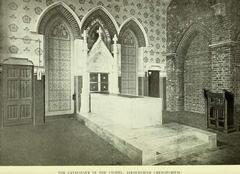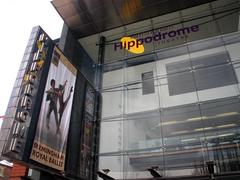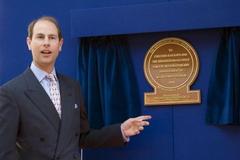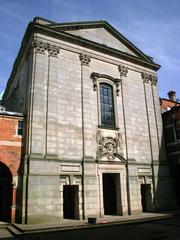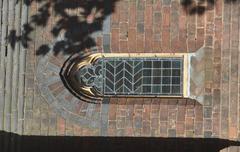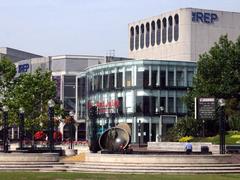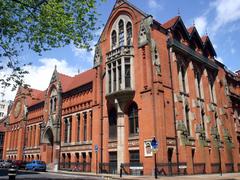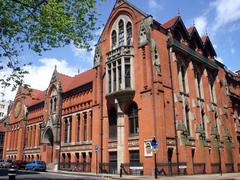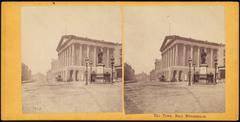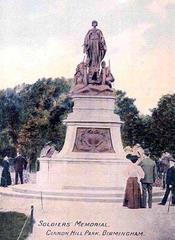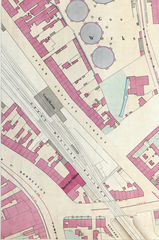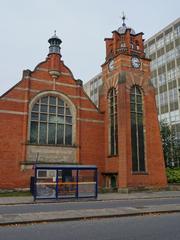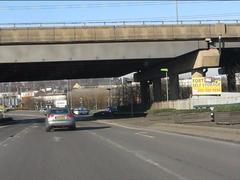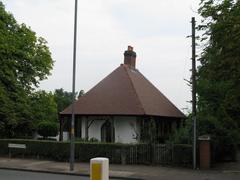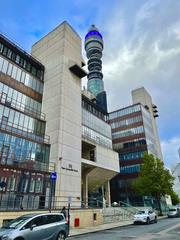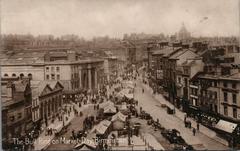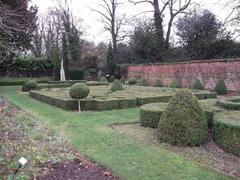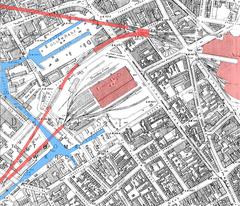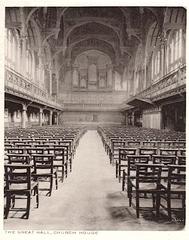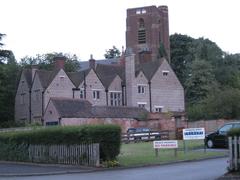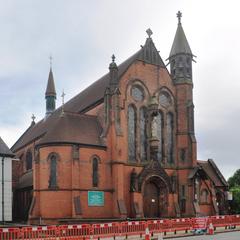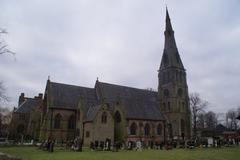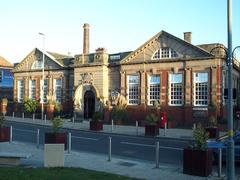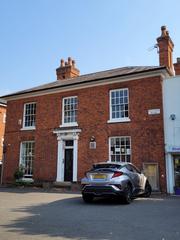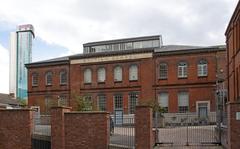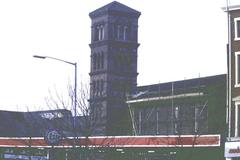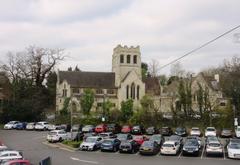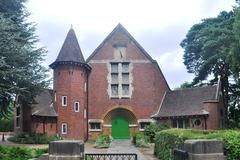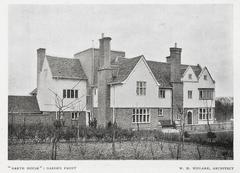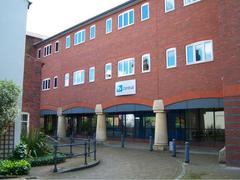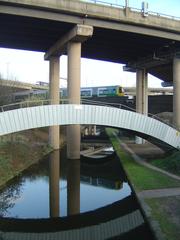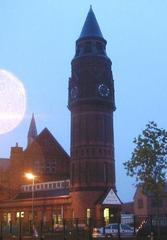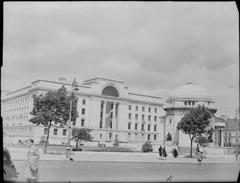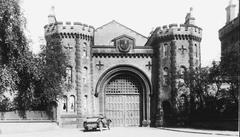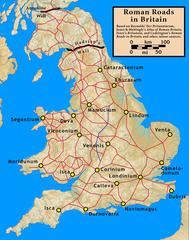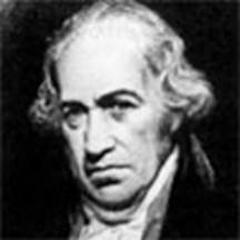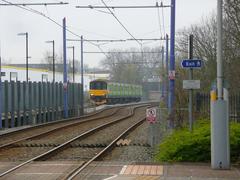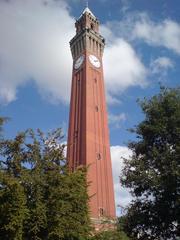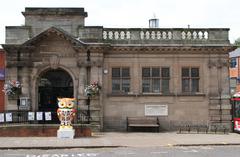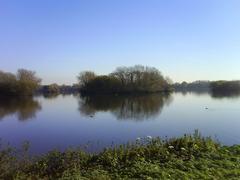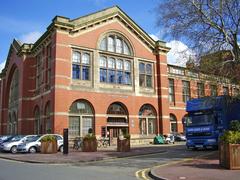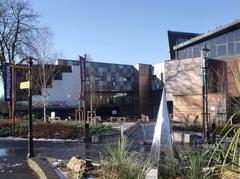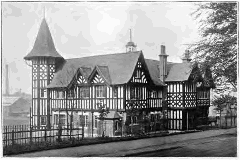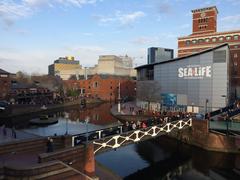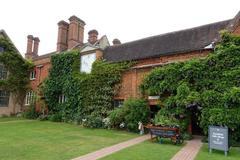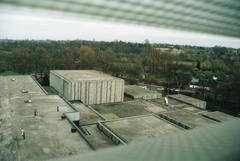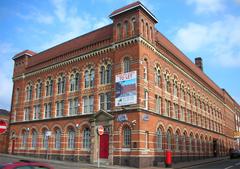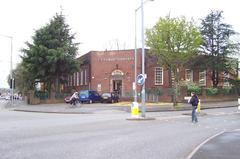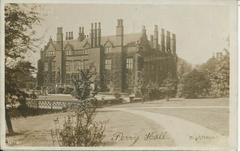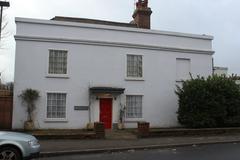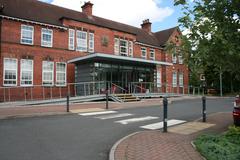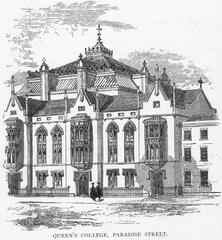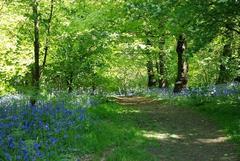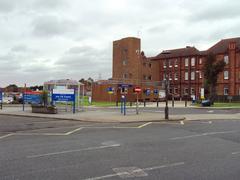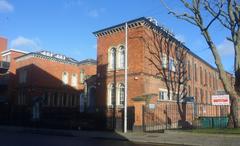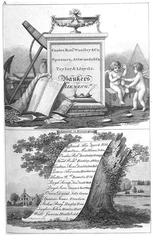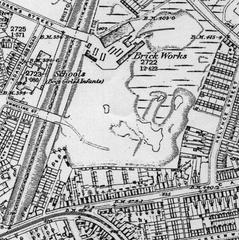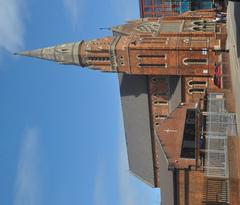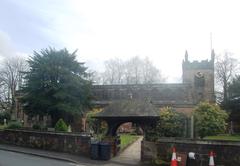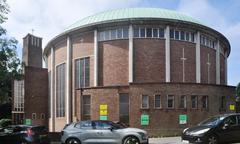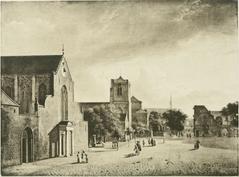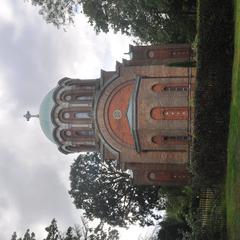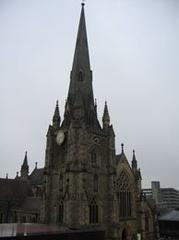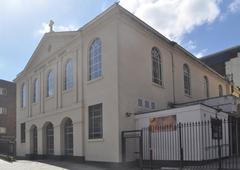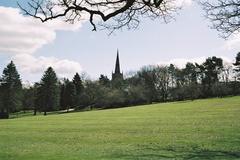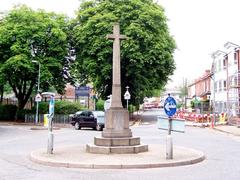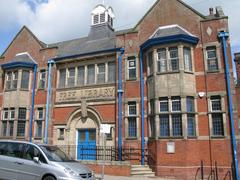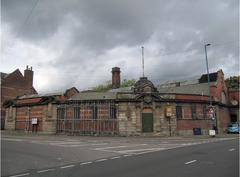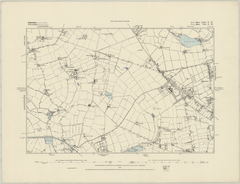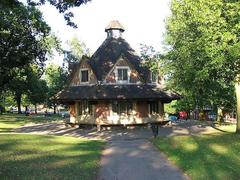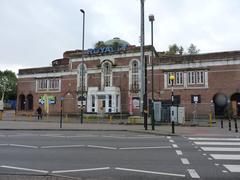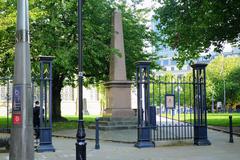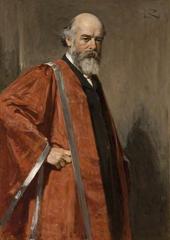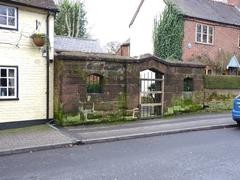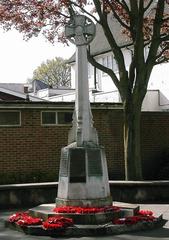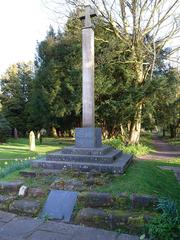Trust School Birmingham Visiting Hours, Tickets, and Historical Information
Date: 14/06/2025
Introduction to Trust Schools in Birmingham
Birmingham, United Kingdom, is renowned for its rich educational heritage and vibrant cultural landscape. Among the city’s most distinguished educational landmarks are its Trust Schools—institutions governed by organizations such as the King Edward VI Foundation, Summit Learning Trust, and Create Partnership Trust. These trusts uphold a legacy of academic excellence, social inclusivity, and innovative teaching, making Birmingham a hub for both historic and forward-looking education (King Edward VI Foundation; Summit Learning Trust; Create Partnership Trust).
From their 16th-century origins to their role at the forefront of education today, Birmingham’s Trust Schools offer visitors a unique window into England’s educational evolution. This guide provides comprehensive, up-to-date information on visiting hours, ticketing, accessibility, directions, and nearby attractions to help you make the most of your visit.
Contents
- Introduction to Trust Schools in Birmingham
- Historical Background and Evolution
- Governance and Community Impact
- Educational Achievements and Significance
- Cultural and Social Engagement
- Visitor Experience and Practical Information
- Nearby Attractions
- Frequently Asked Questions (FAQs)
- Conclusion
- Official Sources and Further Resources
Historical Background and Evolution
Early Foundations
The tradition of educational excellence in Birmingham traces back to the founding of King Edward’s School in 1552. This institution set the standard for centuries of learning and civic engagement and now forms part of the wider King Edward VI Foundation—a trust that unites both selective and comprehensive schools, as well as independent and state academies (King Edward VI Foundation).
20th and 21st Century Developments
In response to changing educational needs, the 20th century saw the rise of Trust Schools—institutions managed by multi-academy trusts that foster collaboration, shared resources, and a unified vision. Trusts such as Summit Learning Trust and Create Partnership Trust have expanded Birmingham’s educational landscape, emphasizing autonomy, community involvement, and high standards. Today, these trusts operate a network of primary, secondary, and sixth form academies recognized for their achievements and commitment to inclusion (Summit Learning Trust; Create Partnership Trust).
Governance and Community Impact
Trust Schools in Birmingham are governed by boards that prioritize transparency, accountability, and community engagement. Stakeholders—including parents, students, and local authorities—play active roles in shaping school policies and monitoring performance (Get Information about Schools).
The Create Partnership Trust, for example, is dedicated to supporting disadvantaged children through innovative approaches and close community ties. Each trust customizes its strategies to the needs of its schools, promoting diversity and inclusion throughout Birmingham (Create Partnership Trust).
Educational Achievements and Significance
Birmingham’s Trust Schools have a long-standing reputation for academic excellence and public service. The King Edward VI Foundation, in particular, unites a mix of independent and state schools known for high achievement, community engagement, and cultural enrichment (King Edward VI Foundation). Schools within the Summit Learning Trust are consistently rated “Good” or “Outstanding” by Ofsted, with many recognized for significant improvement and success in national competitions (Summit Learning Trust).
Cultural and Social Engagement
Birmingham’s Trust Schools are deeply embedded in the city’s dynamic and diverse social fabric. They regularly host cultural events, heritage exhibitions, and public lectures that celebrate local and international traditions. Initiatives such as the African and Caribbean Society Conference and sustainability projects further demonstrate their commitment to social responsibility (Summit Learning Trust). The city’s reputation as an educational hub is further enhanced by a large international student community (Grapevine Birmingham).
Visitor Experience and Practical Information
Visiting Hours & Ticketing
- Open Days: Trust Schools typically open their historic buildings to visitors during designated open days and special events, usually in the spring and autumn. Standard hours are 10:00 AM to 3:00 PM.
- Admission: Entry to open days and tours is usually free, but advance registration is required due to space limitations. Ticketed events such as performances or exhibitions may incur a fee, listed on the schools’ websites.
- Booking: Reserve your place online via the relevant trust or school website, or contact the admissions office directly.
Location & Directions
Most Trust Schools are located in central Birmingham, with a concentration around Edgbaston Park Road.
- Bus: Multiple routes serve the area.
- Train: Birmingham New Street Station is about 2 miles away, with frequent connections.
- Car: Limited on-site parking is available; public transport is recommended for convenience (VisitBritain).
Accessibility
Trust Schools are committed to accessibility, offering ramps, lifts, and accessible parking. Visitors with disabilities should contact schools in advance to arrange additional support.
What to Expect
- Guided Tours: Explore historic classrooms, libraries, and assembly halls with expert guides.
- Cultural Events: Attend concerts, exhibitions, and heritage days—open to the public during event dates.
- Photography: Permitted in most areas, but always seek permission if students or staff are present.
Visitor Etiquette
As active educational environments, visitors are expected to:
- Respect school policies and schedules
- Obtain permission for photography involving students or staff
- Adhere to designated visiting times
Nearby Attractions
Enhance your visit to Trust Schools by exploring Birmingham’s other historic and cultural sites:
- Birmingham Museum & Art Gallery: Home to world-class collections (Birmingham Museum & Art Gallery).
- Library of Birmingham: Modern architecture with city views (Library of Birmingham).
- Jewellery Quarter: A heritage destination with unique shops and museums.
- Aston Hall: A Jacobean mansion with regular tours and events (Aston Hall).
Frequently Asked Questions (FAQs)
Q: Can I visit Trust Schools anytime?
A: No, visits are generally limited to open days, special events, or by prior arrangement.
Q: Are there entrance fees?
A: Most open days are free, but some events may require tickets.
Q: Are Trust Schools accessible?
A: Yes, most provide accessibility features. Contact the school in advance if you have specific needs.
Q: Can I take photographs?
A: Photography is allowed in designated areas; always ask before photographing people.
Q: Where can I learn about upcoming events?
A: Visit the official websites of the trusts or check local tourism platforms.
Conclusion
Trust Schools in Birmingham are more than centers of learning—they are living monuments to the city’s educational, cultural, and social evolution. Their historic buildings, outstanding achievements, and strong community connections make them essential destinations for visitors interested in history, architecture, and education. Plan your visit to experience guided tours, cultural events, and the vibrant legacy that continues to define Birmingham’s educational landscape.
Call to Action
Stay updated on open days, events, and educational programs by consulting the official trust websites and local tourism resources. For an enhanced experience, download the Audiala app for interactive tours, event notifications, and insider tips on Birmingham’s educational and historical attractions. Connect with us on social media for the latest updates!
Official Sources and Further Resources
- King Edward VI Foundation Official Website
- King Edward VI Foundation
- Summit Learning Trust
- Create Partnership Trust
- Aston Hall
- Birmingham Museum & Art Gallery
- Library of Birmingham
- Grapevine Birmingham
- Get Information about Schools
- VisitBritain Birmingham Guide
